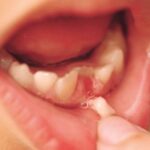For many, sweets hold an irresistible appeal due to their delightful, indulgent flavors. However, there exists a group of people who choose to forgo sweets for various reasons, be it personal preference or health concerns related to excessive sugar consumption.
While some studies indicate certain health benefits of sweets, concerns about their impact remain a significant topic within the research community. A notable question is whether there is a link between the amount of sugar consumed and the risk of developing cancer.
Recently, researchers at the University of Paris in France published a study relating sugar consumption and cancer risk in the “American Journal of Clinical Nutrition.” The study monitored the diets and food intakes, including sugar, of 101,279 participants. The results showed that there were 2,503 recorded cases of cancer, with a 47% increased risk of breast cancer among high sugar consumers. These findings suggest a positive correlation between sugar intake and overall cancer risk.

Researchers at the University of Paris, France, Recently Published a Study on Sugar Consumption and Cancer Risk
A recent study from Japan, published in the journal Science Advances, highlighted the negative psychological impacts associated with sugar consumption. The researchers established two control groups through experiments to observe the effects of a sucrose-rich diet on children. Results indicated that after adolescents were fed a sucrose-rich diet, they exhibited a higher risk of brain vascular damage and abnormal brain function later on, while also exacerbating psychiatric symptoms.
In an article published in the journal Nature titled “Public Health: The Toxic Truth About Sugar,” Professor Robert H. Lustig, an endocrinologist at the University of California, San Francisco, pointed out that excessive sugar consumption can lead to “sugar addiction.” He argued that the harm caused by this addiction to the body is no different than that of tobacco and alcohol use.
Additionally, numerous studies have shown that consuming sweets can cause damage to various parts of the body at different levels.
The Risks of Excessive Sugar Consumption
Consuming sugar can provide a temporary feeling of happiness. A piece of candy or a slice of cake might boost your mood when you’re feeling down or bored. However, this comfort only lasts for about 30 minutes. In contrast, the long-term damages from sugar consumption are far more severe.
Firstly, eating too much sugar increases the risk of developing various diseases. A study published in The British Medical Journal by a group of experts from West China Hospital at Sichuan University showed that long-term sugar consumption could increase the risk of cardiovascular disease, endocrine disorders, cancer, and at least 45 other dangerous diseases.
Secondly, consuming foods with high sugar content also increases the risk of tooth decay.
Moreover, eating too much sugar negatively affects skin health. Excess sugar can promote cell division, directly impacting the condition of the skin, while also reducing collagen effectiveness, causing a loss of elasticity and accelerated aging.

Consuming Foods with High Sugar Content Increases the Risk of Tooth Decay
3 Methods for Rational and Scientific Sugar Consumption
While sugar consumption can be detrimental to health, you don’t need to eliminate sweets entirely from your diet. Just practice moderation and pay attention to your eating habits, and you can enjoy treats without worry.
Be Aware of Hidden Sugars
Products marketed as “sugar-free” often simply replace white sugar with other components like sucrose, fructose, or glucose. These substances can still be considered “hidden sugars” and should be consumed sparingly.
Manage Your Sugar Intake Reasonably
If you consume sugar in moderation, the benefits may outweigh the risks. It is recommended that adults consume no more than 50 grams of sugar per day, with an ideal amount being less than 25 grams.
Reduce Sugar When Cooking
White sugar is commonly used to enhance the flavor of many dishes in daily meals. However, the combination of oil and sugar often leads to high-calorie intake and is a primary cause of obesity. Therefore, it is advisable to minimize sugar when cooking daily meals.
“Pain-Free DIY Baby Tooth Extraction”
When it comes to pulling your child’s milk teeth, a gentle touch and a keen awareness of the wiggle room are key. With a deft hand and an understanding of the tooth’s mobility, you can ensure a swift and painless extraction. Learn more about this simple and pain-free process in our informative article.
Unveiling the Revolutionary Sugarcane Fiber Tableware: A Safer Alternative to Styrofoam for a Cancer-Free Future
The health hazards associated with foam boxes have prompted many forward-thinking businesses to introduce a revolutionary range of lunch boxes, cups, plates, and bowls made from sugarcane residue. These products offer a safe and sustainable alternative, posing no threat to health and providing an effective solution to environmental concerns.




































